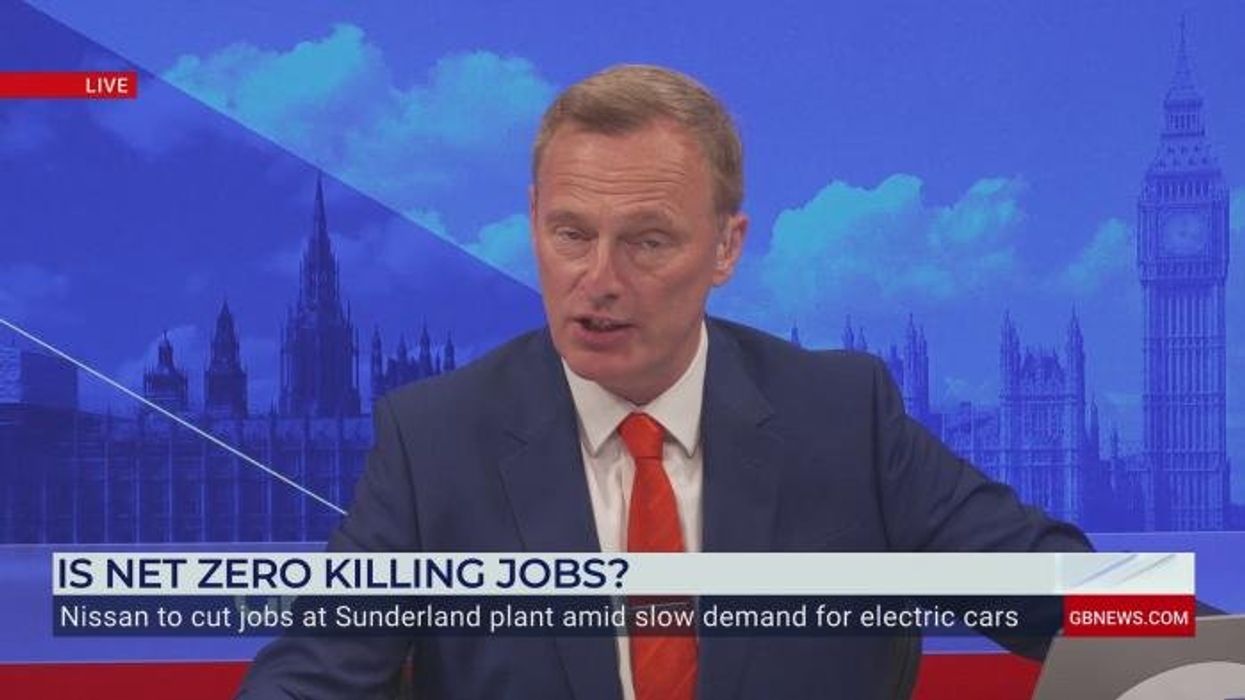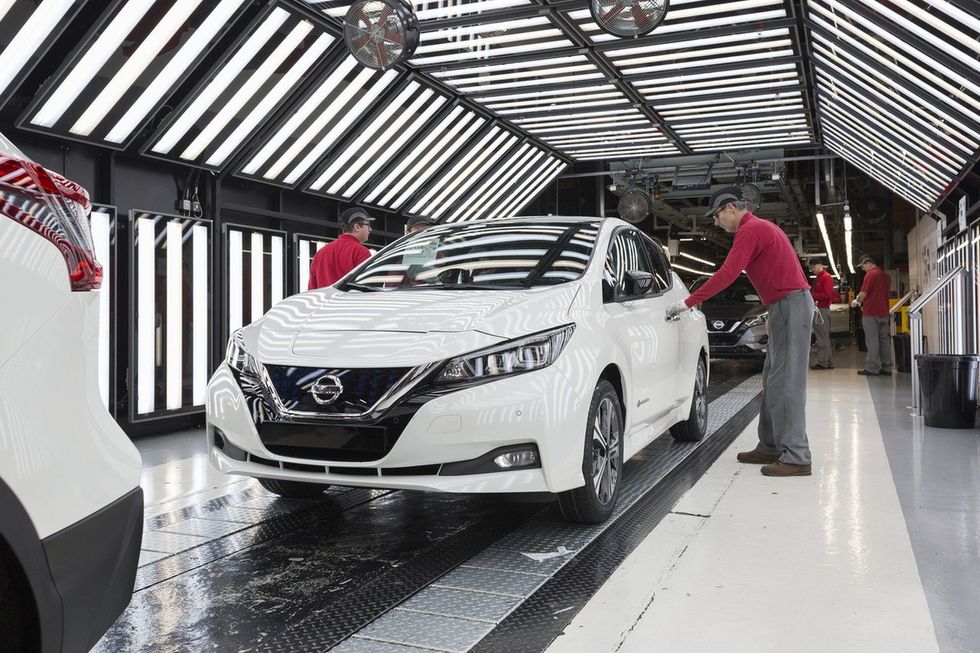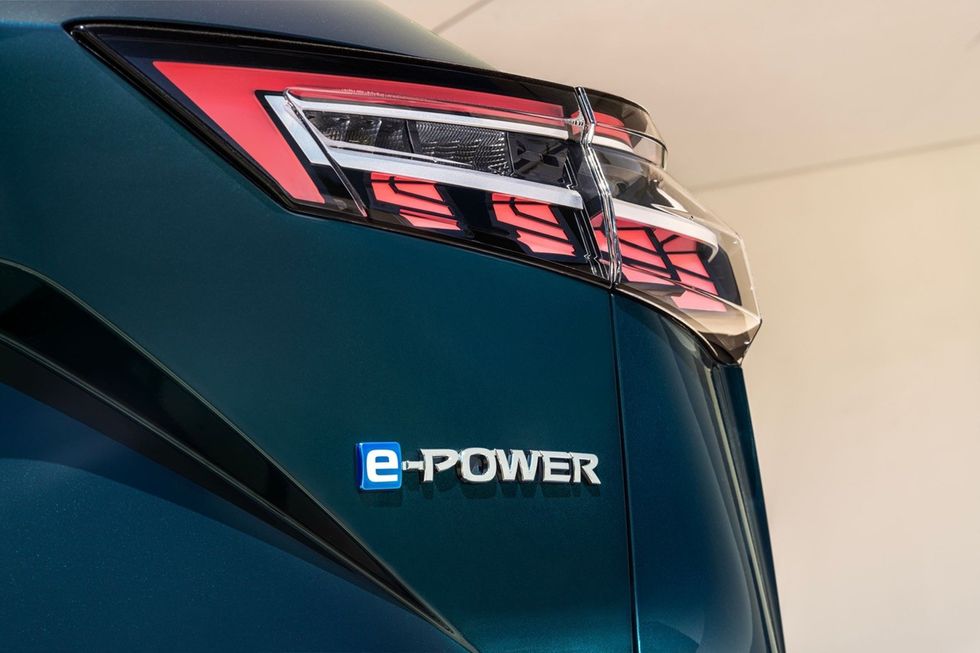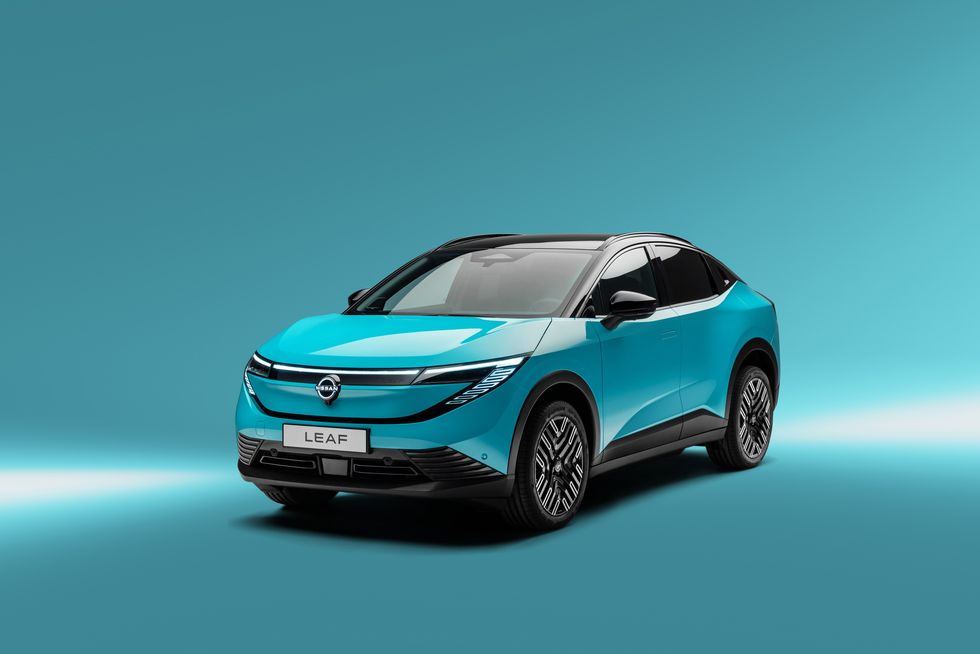Labour dealt blow as major car brand refuses to give up petrol and diesel cars - 'Customers will decide'

WATCH: Is net zero killing jobs? Nissan plans to slash 250 jobs from Sunderland factory
|GB NEWS

Nissan has revealed it will keep petrol and diesel hybrids so long as there is consumer interest
Don't Miss
Most Read
A major car brand has signalled that consumer preferences, rather than Government mandates, will shape its approach to vehicle powertrains.
Nissan revealed that it will stick to offering both petrol, diesel and electric cars despite the UK moving toward its Zero Emission Vehicle mandate.
Christophe Amblard, Nissan Europe’s head of product strategy, emphasised that buyers should retain the freedom to select their preferred technology.
Speaking during the international launch of the latest Leaf, he explained that "what we've always said is that the customer will decide."
TRENDING
Stories
Videos
Your Say
The comments come as the UK prepares to ban the sale of new petrol and diesel cars from 2030, a move that will permit only electric and hydrogen fuel-cell vehicles, as well as hybrid cars, until 2035.
This represents a major shift in automotive policy, forcing manufacturers to ensure that all new vehicles sold after the deadline produce zero emissions at the tailpipe.
But despite the regulatory pressure, Nissan has maintained its commitment to offering multiple powertrain options, reflecting the belief that consumers should guide the transition to low-emission transport rather than being forced into a single solution.
The UK’s forthcoming ban has raised questions about the pace at which manufacturers can transition to full electrification.

Nissan explained that it will retain its hybrid vehicles as long as there is consumer interest
| NISSANNissan’s approach has been to pursue a dual strategy, which consists of continuing the development of battery-electric vehicles while also investing in hybrid technologies.
"As an OEM (Original Equipment Manufacturer), we propose both solutions with hybrid and electric powertrains," Mr Amblard explained.
The Japanese manufacturer said this was a necessary step to manage the transition from conventional internal combustion engines to full electrification.
Nissan, which pioneered mass-market electric vehicles with the original Leaf in 2011, appears cautious about abandoning alternatives entirely before 2035.

The carmaker has continued to pursue its hybrid technology
|NISSAN
LATEST DEVELOPMENTS:
As part of its electric vehicle expansion, Nissan plans to introduce four new battery-powered models, including the third-generation Leaf and an electric Micra, alongside an electric Juke and a compact city car designed for urban environments, both set for release in 2026.
These launches form part of what Mr Amblard described as Nissan’s "EV offensive", reflecting the company’s ongoing commitment to electrification while still recognising the importance of consumer choice.
"We believe the ultimate goal is to be 100 per cent EV. The question is, how do we transition to that period?" he added.
Nissan’s continued investment in hybrid technology highlights the company’s view that a gradual transition is necessary.
The manufacturer is continuing to develop its e-Power hybrid systems, which combine a petrol engine with an electric motor, offering an intermediary solution for consumers not yet ready to embrace fully electric vehicles.
"We are continuing to invest in our e-Power hybrid powertrains, but we will continue to lower emissions, as they still emit CO2," Mr Amblard said.
 The new Nissan Leaf will be manufactured in the UK next year | NISSAN
The new Nissan Leaf will be manufactured in the UK next year | NISSANThis strategy acknowledges the environmental limitations of hybrids, but positions them as a compromise for consumers seeking improved efficiency over traditional petrol engines while maintaining familiar refuelling habits.
Nissan sees hybrids as a bridge technology, helping customers adjust to low-emission vehicles at their own pace.
The new Leaf will arrive in UK showrooms in February 2026, with prices expected to start around £33,000.
Buyers are likely to benefit from the Government’s £3,750 Electric Car Grant, making the vehicle more competitive against conventional petrol models and lowering the barrier to entry for electric motoring.
The timing of the Leaf launch allows Nissan to gauge market response before introducing its broader electric range later in 2026.
This staggered rollout allows the company to adjust its strategy based on consumer uptake, ensuring that future launches align with buyer preferences while supporting the shift toward zero emission motoring.










